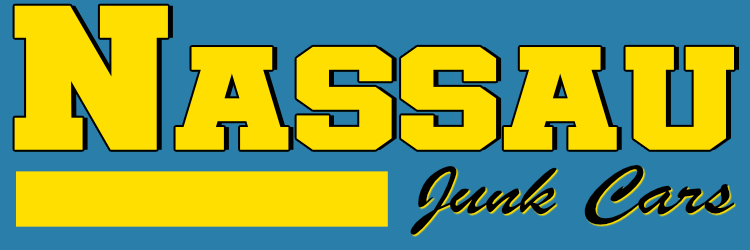So, your car’s reached the end of its journey, and you’re thinking about turning it into cash in Woodmere, NY. The process might seem challenging, but it’s more straightforward than you’d expect. By evaluating your vehicle’s worth, gathering the right paperwork, and choosing a trustworthy buyer, you can seamlessly shift from clunker to cash. But there’s more to reflect on, especially when it comes to legal and environmental factors, which can greatly impact your experience.
Key Takeaways
- Research local junk car buyers and compare online quotes to determine your car’s value.
- Gather essential documentation, including the vehicle title and a government-issued ID, for ownership proof.
- Select a reputable buyer registered with the New York DMV and offering transparent pricing.
- Schedule a convenient pickup time and prepare for a quick inspection and cash payment.
- Ensure compliance with legal requirements, such as surrendering license plates and adhering to environmental regulations.
Evaluating Your Junk Car’s Value
When evaluating your junk car’s value, it’s vital to contemplate several key factors that directly impact the cash offer you’ll receive. Start with the make, model, year, and condition of your vehicle, as these elements are significant in determining its worth.
To guarantee you’re getting fair cash, research online quotes from various junk car buyers and junkyards. This will help establish a baseline value based on both scrap metal and parts potential.
Research online quotes from junk car buyers to establish a baseline value for your vehicle.
Next, consider the car’s weight and current scrap metal prices, which often dictate the offer from junkyards. Assess any functional parts that could fetch top dollar, as these components can boost your final valuation.
Additionally, understanding local market conditions in Woodmere NY is important; demand for specific parts or materials may influence your offer when selling your junk car.
With these insights, you can make the process smoother and more profitable, achieving the best possible outcome.
Gathering Essential Documentation
Before you can sell your junk car in Woodmere, NY, gathering essential documentation guarantees a smooth transaction. Start with the vehicle title, which proves ownership and is vital for a legal transfer. If you’ve misplaced it, don’t worry—obtain a duplicate title from the DMV by filling out the necessary form and paying a nominal fee. A valid government-issued ID is also required to verify your identity, ensuring that the transaction remains legitimate.
While the vehicle registration isn’t always mandatory if you have the title, having it can streamline the process. Providing keys is optional, but it may facilitate transport and potentially increase the offer from junk car buyers.
| Documentation Needed | Purpose |
|---|---|
| Vehicle Title | Proof of ownership for legal transfer |
| Valid Government-Issued ID | Identity verification during the sale |
| Duplicate Title (if lost) | Replacement for a lost vehicle title |
Ensure all documentation is ready before selling.
Selecting a Reputable Buyer
With your paperwork in order, the next step involves selecting a reputable buyer for your junk car in Woodmere, NY.
Start by checking the buyer’s registration with the New York DMV to guarantee they comply with state regulations. This step verifies legitimacy and gives you peace of mind.
Explore customer reviews and testimonials online to assess the buyer’s reputation and reliability. You want someone who consistently delivers on promises.
Transparent pricing is essential—confirm there are no hidden fees and that you receive a fair cash offer. A reputable buyer will make this clear from the start.
Additionally, opt for buyers who offer free towing services. This not only saves you money but also simplifies the process.
Finally, confirm that the buyer is certified by organizations like the Automotive Recyclers Association of New York. This certification guarantees your vehicle is disposed of in an environmentally responsible manner.
Scheduling Pickup and Completing the Sale
Arranging the pickup for your junk car in Woodmere, NY, is a straightforward process that guarantees a seamless transaction. Start by contacting a reputable service provider for a free instant quote. They offer free pickups and will schedule a time that suits you.
On the scheduled day, your vehicle undergoes a quick inspection to confirm its condition. With everything in check, you’ll receive Fast Cash right on the spot, turning your junk into immediate financial gain.
The service provider takes care of all the necessary paperwork, including title transfers, easing the burden and making certain everything aligns with New York City regulations. This meticulous attention to detail allows you to focus on enjoying your newfound cash without worrying about administrative hassles.
Legal and Environmental Considerations
When junking a car in Woodmere, NY, understanding the legal and environmental considerations is essential for a smooth and compliant process.
First, verify you have proof of ownership, typically the vehicle title. If the title is lost, get a duplicate title from the DMV.
After junking vehicles, surrender the license plates to the DMV to avoid future fees and guarantee registration cancellation.
New York’s environmental regulations require proper disposal of hazardous materials, like fluids and batteries, to prevent pollution. Adhering to these rules protects public health and the environment.
Cars under 10 years old need an odometer disclosure statement to accurately report mileage.
Additionally, check local county rules for any specific requirements. These can vary, and being informed will prevent legal hiccups.
Frequently Asked Questions
How Much Will a Junkyard Pay for a Junk Car?
When evaluating a junk car’s worth, consider junk car valuation factors like scrap metal prices and vehicle condition impact.
Local junkyards may offer anywhere from $100 to $1,000, influenced by parts resale value and market demand trends.
Compare offers from different junkyards and use pricing negotiation tips to maximize your deal.
Don’t forget towing costs consideration and vehicle age factors, as they can affect the final price you receive.
How to Get the Most Money for a Scrap Car?
To squeeze every penny from your junk car, start with a thorough evaluation, just like a detective uncovering clues.
Check scrap metal prices and assess your vehicle’s condition.
Compare offers from local salvage yards, using negotiation techniques to raise cash offers.
Confirm all paperwork requirements are met to avoid hiccups.
Highlight recycling benefits to entice buyers.
How to Get the Most Cash for Your Junk Car?
To maximize cash offers for your junk car, assess the car condition and vehicle age to determine its salvage value.
Consider repair costs and market demand, as these influence potential earnings.
Use negotiation tips to engage with local buyers, emphasizing the recycling benefits.
Compare offers by contacting multiple buyers and highlight any valuable parts.
An informed approach guarantees you get the best deal, leveraging industry insights and technical expertise.
Do I Need to Notify DMV if I Junk My Car in NY?
Did you know that over 80% of a junk car’s weight can be recycled?
When junking your car in New York, you must follow the DMV notification process to guarantee compliance.
To begin with, meet the junk car requirements by providing proof of ownership and completing necessary paperwork.
The selling process steps include title transfer rules and vehicle registration cancellation.
Adhering to these legal obligations guarantees a smooth shift, so always verify DMV contact information for any New York regulations updates.
Conclusion
In the world of junk car sales, turning a rusty relic into cash is as easy as pie when you follow the right steps. Evaluate your car’s worth, gather the necessary documents, and choose a reputable buyer who offers transparent pricing and free towing. On pickup day, with all paperwork in order, you’ll receive cash in hand. By steering through these waters wisely, you’ll not only gain financially but also contribute to environmentally friendly practices.

